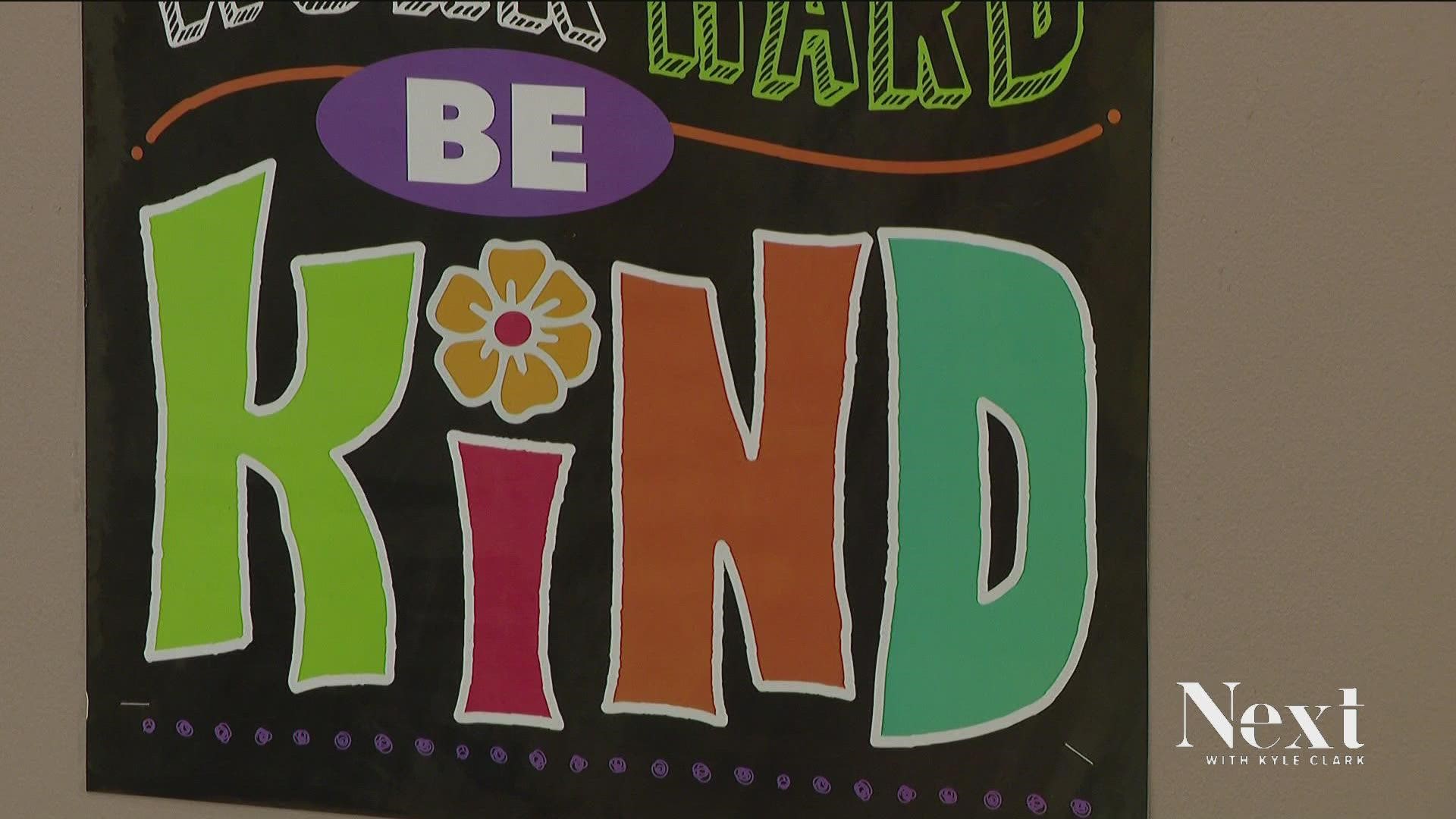JOHNSTOWN, Colo. — There aren’t enough school counselors to help every student who could use their guidance. The problem is even worse around Colorado’s rural districts.
That’s why there’s a new push to train people like teachers and school staff to respond to mental health emergencies.
"We’re not here just to teach kids how to read, but also to function as humans in society," said Erin Nelson, a school counselor at Pioneer Ridge Elementary School in Johnstown. "Part of that is that mental health piece and the social skills."
Nelson sees the need every day. Her office is always busy, and her workload shows the challenges mental health counselors are facing in schools.
"At one point I was at almost 700 kids for one counselor here in this building," Nelson said. "Now we’re under 500, so that’s good. But that’s still one of me to 500 kids."
She’s outnumbered, but she actually feels lucky her district hired a psychologist to help. She knows other rural schools are far worse off.
"I’m happy that it’s a priority. I know a lot of small districts don’t prioritize that piece," said Nelson. "I’m really happy that we did prioritize that as a district."
The pandemic made her job even more important.
"I don’t like doing suicide assessments on elementary aged kids," Nelson said. "It’s terrifying and scary."
Inside classrooms at the University of Northern Colorado, Breanna King and Ashley Coburn are trying to figure out ways to make the most of limited resources in rural school districts. They’re working to train as many people as possible in Youth Mental Health First Aid.
"Our idea was to bring it to rural communities who might not have as much access as non-rural communities," said King, a doctoral student at UNC in Greeley. "It really teaches them how to identify kids who may be in a mental health crisis or experiencing depression or anxiety, as well as substance abuse issues."
The training gives people like teachers and school staff the tools to help kids with mental health. In a world where there aren’t enough counselors, they want everyone to know how to respond.
"That’s the hope. That in training more non-mental health professionals, they will be able to identify some of the signs that kids will present with early on," Coburn said. "It is a training aimed at non-mental health professionals to train them how to respond in the event of a student crisis."
A mental health first aid training is similar to what a first aid or CPR class would look like. It's focused on helping people identify others who need help, and then giving them the tools to actually help.
In schools, teachers are trained for things like identifying substance abuse issues, depression and anxiety. It’s focusing on things that may often be overlooked but could be signs of deeper problems if they aren’t addressed.
"I grew up in a rural school, and I saw the stigmatization around mental health. Just kind of that keep it under wraps and pull yourself up from the bootstraps mentality," Coburn said. "If we’re not talking about mental health being a problem, especially in rural areas, we’re going to keep seeing those suicide rates go up."
The hope is to take the load off counselors like Nelson.
"I do think it’d be beneficial for teachers to have more in that tool bag to help the kids when they come with problems that they need help with," she said.
SUGGESTED VIDEOS: Next with Kyle Clark

